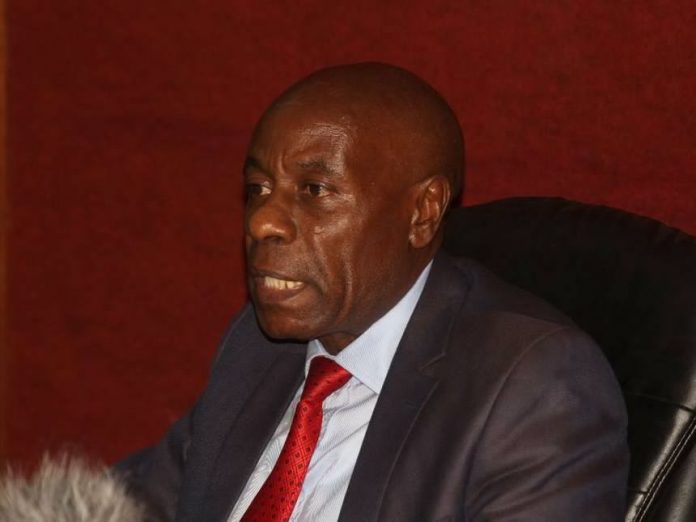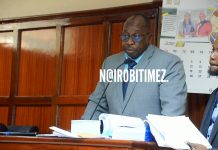
BY SAM ALFAN.
The High Court has dismissed a petition by Council of Governors seeking to stop implementation of section 28 of the Elections Act NO. 24 of 2011 as amended by Provisions of the Elections Law (Amendment) Act 2017.
Justice John Mativo ruled the petition lacked merits and failed to demonstrate the challenged section of of the constitution were unconstitutional.
“This petition is premised on a clear misapprehension of the law. In view of my findings, I find that the petitioners have failed to demonstrate that the challenged section is unconstitutional or in any manner infringes any provision of the constitution” ruled Mativo.
High Court in February issued temporarily orders restraining Independent Electoral & Boundaries Commission (IEBC) from implementing party hoping laws pending hearing and determination of the petition filed by council of governors.“I hereby stay the implementation of section 28 of the Elections Act NO. 24 of 2011 as amended by Provisions of the Elections Law (Amendment) Act 2017” ordered Judge Mativo.
Council of Governors through lawyer Peter Wanyama moved to court seeking orders to overturn a law that bars politicians from defecting to another party after losing in the primaries.The council sued the Attorney-General and the Independent Electoral and Boundaries claiming that the Election Laws Amendment Act 2017 which kicked off on January 30 contains a problematic unconstitutional section.
The governors further claimed that Section 28 of the Elections Act requires that a political party submits its list of members to IEBC 120 days before polls, meaning a member cannot resign or join another party afterwards.
The county chiefs argued that Section 28 of the amended Elections Act limits the freedom of association and the liberty of making political choices by Kenyans as provided in the Constitution.
In January 2017 Parliament passed the Election Laws Amendment Act of 2017 which purports to give effect to Article 99 (1) (b) of the Constitution, to amend the Elections Act, 2011 and the Independent Electoral and Boundaries Commission Act, 2011; to provide for electoral processes and for connected purposes.
“If implemented as it is, the effect will create a lock up of names and limit genuine and warranted political defection which is a characteristic of any multiparty democracy,” the Council of Governors argued through lawyer Henry Wanyama.
Under the Election Amendment Law, which was enacted last month, a political party is now required to submit its list of party members to the Independent Electoral and Boundaries Commission (IEBC), at least 90 days to the date of the General Election.
The forty-five days window period provided for by the Elections Act, 2011 gave sufficient time before elections for aspirants to political offices to pick and choose Political Parties of their preference to run in the elections with, which is a characteristic of any multi-party democracy.
The changes to the polls legislation require parties to carry out their nominations at least 60 days to the elections rather than the 45 allowed currently.
As a result, the governors say that a member of a political party whose name has been submitted within this duration cannot resign from that party and join another one before the gazette deadline for political party primaries.
“Where a person has genuine, justifiable and warranted reasons for defection after the 120 days deadline, such a person cannot exercise the constitutional political freedom to resign and join another political party and vie for election in the new party (provided the right is exercised within the deadline for nomination set by Independent Electoral & Boundaries Commission)” argues governors.
They argued the restriction of political freedoms is wholly disproportionate to its purported purpose in an open and democratic society.
According to the council, attempts to put political parties’ affairs in order cannot be achieved by unreasonably locking out others in an unfair manner and that the 45 days window period as initially provided by the law was sufficient enough for picking and choosing those to run in the elections.
“By denying members of a political party the right to freely move from one political party to another and still be eligible to contest in the general elections without any unreasonable restrictions limits the right to political participation and association,” Mr Wanyama said.
Mr Wanyama argued that, the Constitution provides for limitation of rights and fundamental freedoms only in reasonable and justifiable circumstances in an open and democratic society based on human dignity, equality and freedom, taking into account all relevant factors.






